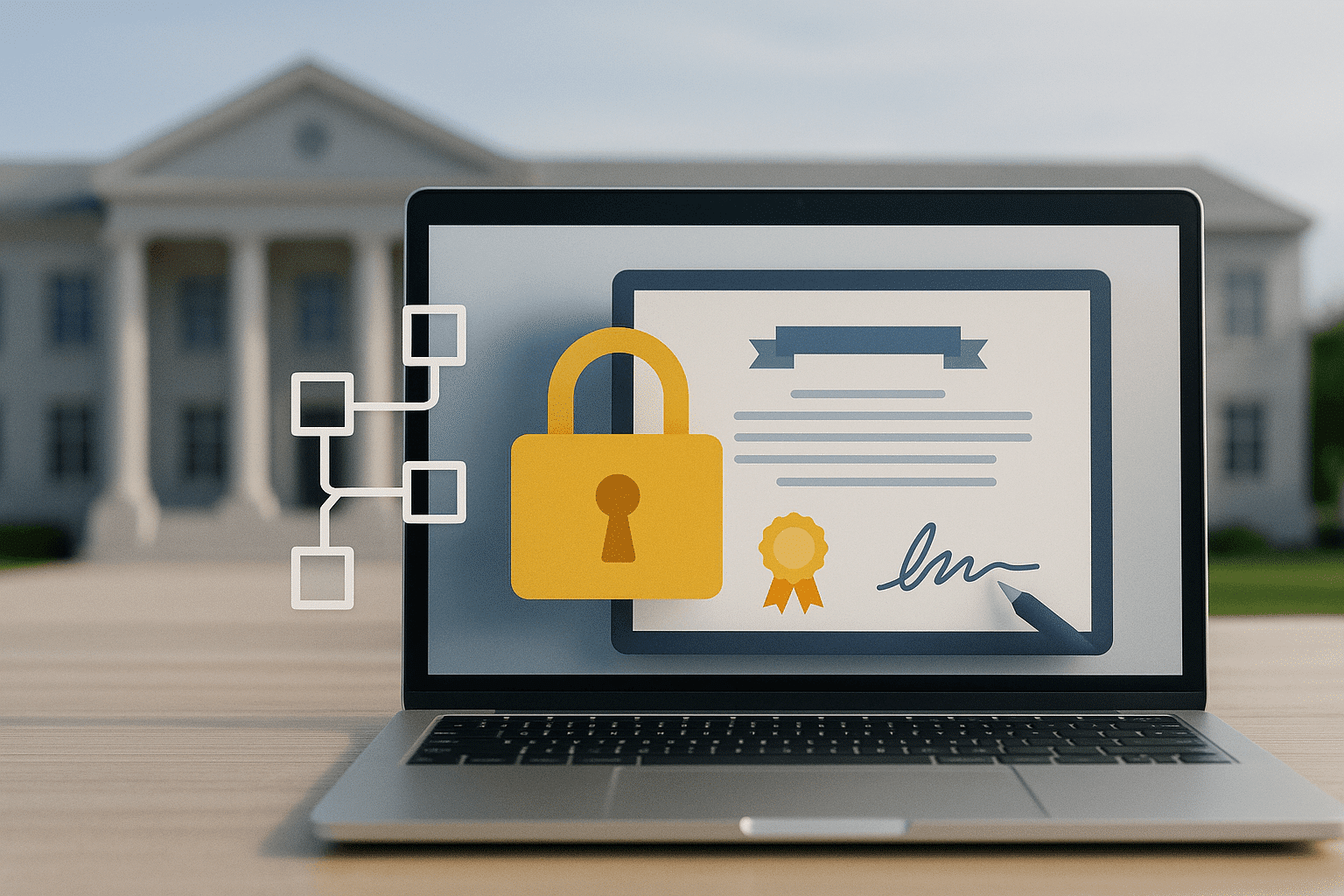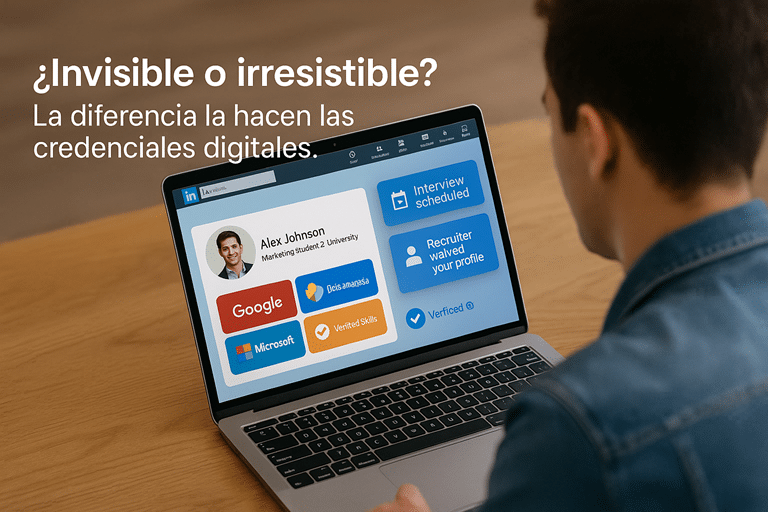📌 Why is protecting academic credentials more urgent than ever?
The rise in academic fraud and falsification of university degrees represents a serious threat to the credibility of educational institutions. In a global context where learning is becoming digitalized, ensure the security and authenticity of digital credentials It is a priority for universities, institutes and continuing education centers.
??? Key fact: Twenty percent of resumes contain false information, and there are informal markets where fake college degrees sell for less than $20 USD.
✅ What is an advanced electronic signature and why is it key for universities?
La advanced electronic signature It allows you to sign digital documents with full legal validity, complying with international standards such as:
- Unique identification of the signatory (e.g. rector or dean).
- Exclusive control over the use of the signature.
- Ability to detect any alteration of the document.
- Legal recognition in countries such as Colombia (Law 527 of 1999), Mexico and much of Latin America.
🔐 In the university context, this means that Professional titles can be digitally signed, without printing, physical stamps or movements.
🔗 How does Blockchain protect digital certificates?
Blockchain It is a distributed ledger technology that provides three key benefits for higher education:
- Immutability: Once a credential is recorded on the blockchain, it cannot be modified.
- Public verification: Anyone (employer, embassy, entity) can verify its authenticity with a click.
- Traceability: Each title has a timestamp and accessible history.
💡 Aplicación real: Universidades que usan Acreditta pueden emitir certificados que quedan anclados en blockchain, accesibles desde cualquier lugar del mundo, sin riesgo de falsificación.
🛡️ Electronic signature + Blockchain: double security for universities
When an institution combines advanced electronic signature within blockchain registration For your degrees and credentials, you get:
| Our Mill | Description |
| ✍️ Authenticity | It is guaranteed that the credential was issued and signed by the institution |
| 🔒 Unalterability | No one can modify the content of the title once it is published. |
| 🔎 Verifiability | Any third party can immediately verify its validity. |
| 📑 Legal validity | Full compliance with current legal regulations |
| 🌐 Global reach | Ideal for mobility, homologation and international employability processes |
🎓 What does the university gain by implementing this technology?
- Greater institutional trust and prestige.
- Reduced academic fraud and false degrees.
- Administrative savings (less printing, sending, manual verifications).
- Improvement of graduate experience, with titles that can be shared on LinkedIn or job platforms.
- Compliance with international standards such as Open Badge 3.0 y Verifiable Credentials.
👩🎓 What does the student gain?
- Receive your credentials in a snapshot.
- Can verify and share them with employers, foreign universities or professional networks.
- Access a learning portfolio validated by your university.
- Gain professional visibility and digital reputation.
🧭 Conclusion
Implement digital credentials with advanced electronic signature y blockchain It is not just a technological improvement: it is an institutional strategy to protect the value of education, build trust, and facilitate academic and professional mobility.
The universities leading this transformation are creating an ecosystem of trusted, verifiable, and global credentials.
📣 Is your university already taking this step?
Acreditta has worked with more than 90 institutions in Latin America, emitting more than 500.000 secure digital credentials.
🔎 Request a free demo and discover how you can start issuing unforgeable, digitally signed, blockchain-backed credentials today.
Subscribe to blog here and receive all our content







